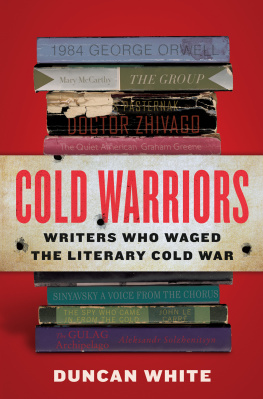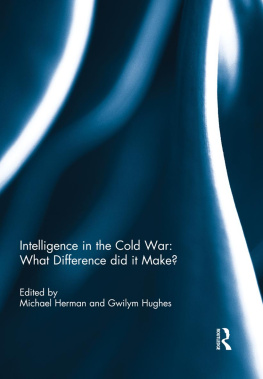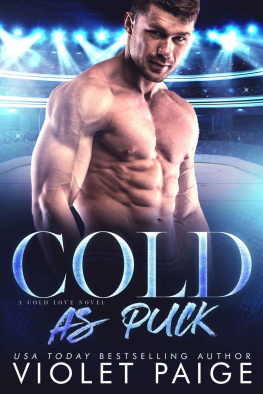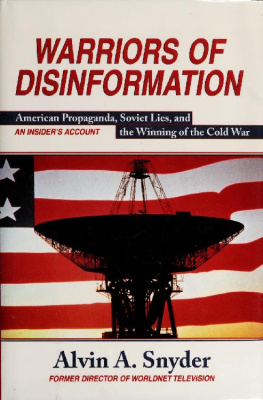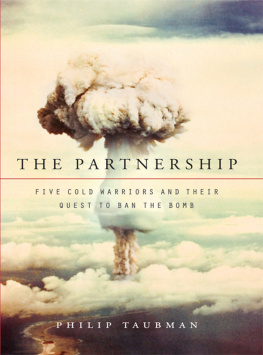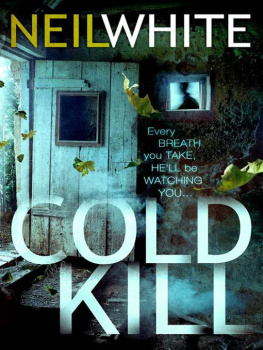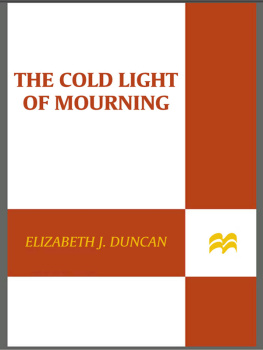Duncan White - Cold Warriors: Writers Who Waged the Literary Cold War
Here you can read online Duncan White - Cold Warriors: Writers Who Waged the Literary Cold War full text of the book (entire story) in english for free. Download pdf and epub, get meaning, cover and reviews about this ebook. year: 2019, genre: Non-fiction. Description of the work, (preface) as well as reviews are available. Best literature library LitArk.com created for fans of good reading and offers a wide selection of genres:
Romance novel
Science fiction
Adventure
Detective
Science
History
Home and family
Prose
Art
Politics
Computer
Non-fiction
Religion
Business
Children
Humor
Choose a favorite category and find really read worthwhile books. Enjoy immersion in the world of imagination, feel the emotions of the characters or learn something new for yourself, make an fascinating discovery.
- Book:Cold Warriors: Writers Who Waged the Literary Cold War
- Author:
- Genre:
- Year:2019
- Rating:3 / 5
- Favourites:Add to favourites
- Your mark:
- 60
- 1
- 2
- 3
- 4
- 5
Cold Warriors: Writers Who Waged the Literary Cold War: summary, description and annotation
We offer to read an annotation, description, summary or preface (depends on what the author of the book "Cold Warriors: Writers Who Waged the Literary Cold War" wrote himself). If you haven't found the necessary information about the book — write in the comments, we will try to find it.
Duncan White: author's other books
Who wrote Cold Warriors: Writers Who Waged the Literary Cold War? Find out the surname, the name of the author of the book and a list of all author's works by series.
Cold Warriors: Writers Who Waged the Literary Cold War — read online for free the complete book (whole text) full work
Below is the text of the book, divided by pages. System saving the place of the last page read, allows you to conveniently read the book "Cold Warriors: Writers Who Waged the Literary Cold War" online for free, without having to search again every time where you left off. Put a bookmark, and you can go to the page where you finished reading at any time.
Font size:
Interval:
Bookmark:
I want to start by thanking my literary agent, Euan Thorneycroft, for believing in this project when it was a tangled mess of notes and ideas. With patience and necessary good humor, Euan nudged and cajoled me along every step of this process, and this book certainly would not exist without him. I am immensely lucky to have such a great editor in Geoff Shandler and Im deeply grateful for his faith in me. I want to thank Tim Whiting for all of his generosity and support; with one insight Tim changed the whole direction of this bookand it is much the better for it. I also want to thank George Lucas at Inkwell for his belief in the project, and his invaluable help and advice along the way. Receiving the Royal Society of Literatures Jerwood Award for Non-Fiction was a moment of spirit-lifting validation, and I am grateful to the judgesJonathan Beckman, Jonathan Keates, and Kate Summerscaleand to the Royal Society of Literature for their support.
This book is built on the strong foundations laid by other books and their authors. I could not possibly count the number of times I have returned to Tony Judts Postwar and Odd Arne Westads The Cold War: A World History . One could not wish for a better guide through the shadowy realm of espionage history than Christopher Andrew. Ben Macintyres books were a source of inspiration and pleasure. A literary history like this is inconceivable without the work of biographers, and I leaned particularly heavily on Christopher Barnes, Carol Brightman, Bernard Crick, Frances Kiernan, Roberta Reeder, Hazel Rowley, Michael Scammell, Norman Sherry, Adam Sisman, Gerald Sorin, John Sutherland, and D. J. Taylor (among many others). Similarly, I am indebted to the painstaking archival work of scholars of the cultural Cold War, including that of Greg Barnhisel, Katerina Clark, David Caute, Evgeny Dobrenko, Peter Finn and Petra Couve, Patrick Iber, Vitaly Shentalinsky, Giles Scott-Smith, James Smith, Frances Stonor Saunders, Joel Whitney, Hugh Wilford, and Vladislav Zubok. There are of course many other scholars whose work has helped me in the writing of this book, both directly and indirectly, and I hope they will forgive me for not listing them by name.
I want to thank everyone who over the last five years has offered advice, heard me out, or kicked around ideas with me. Carol Dougherty and my colleagues at the Newhouse Center for the Humanities at Wellesley College gave me feedback on the very earliest drafts. Eric Naiman and the English, Comparative Literature, and Slavic Literature faculties at the University of CaliforniaBerkeley let me talk about my project at length and offered helpful feedback. Anne Applebaum, Martin Brody, Luke Menand, and Will Norman helped me think about the Cold War in different ways. Mateo Jarquin kindly lent his expertise on Nicaragua. My editors on the Telegraph books pages have made me a better writer, especially Lorna Bradbury, Iona McLaren, and Gabby Wood. I continue to benefit from the generous mentoring of David Bethea, Paul Giles, Jane Grayson, and Michael Wood. Like all writers, I am forever in the debt of librarians, and particularly those of the Widener and Lamont libraries at Harvard; the British Library; the Bodleian Library at Oxford; and the Arlington, Cambridge, and Lexington public libraries. Thanks also to Vedika Khanna for keeping me organized in the homestretch, Mark Steven Long for his insightful copy editing, and the design team at Custom House for making such a handsome book.
Much of this book was written while working at the History & Literature department at Harvard, and I want to thank all of my colleagues for their help over the years, especially Angela Allan, Jenni Brady, Ren Carrasco, Mike DAlessandro, Lauren Kaminsky, Emily Laase, Alan Niles, and Jessica Shires. Extra gratitude to Alan and Angela for reading sections of the manuscript with the deadline looming. Nick Donofrio lent me books, heard me out, and helped me track down two key photos. A special mention goes to Paul Adler, who read most of this manuscript when it was in rough draft, offered countless brilliant editorial suggestions, and weaponized his enthusiasm when my own was flagging (all errors that remain are, of course, mine). And I am grateful to all of my students for reminding me every day that to teach is to learn.
For moral support and friendship: Yambazi Banda, Ben Berlyn, Brendan Cooper, Peter Crosby, Jon Day, Christian Dickman, Alex Feldman, Richard Fletcher, John Gaston, Nicki Goh, Gid Habel, Paul Harrington, Tim Inman, Adam Kelly, Neelu Kumar, Jon McIntosh, Katie Murphy, Jonathan Northcroft, Alex Orquiza, Clint Sieunarine, Matt Sperling, Richard Tacon, Ed Vainker, Steve Vainker, Jimmy Wallenstein, and Sally Whitehill. The respective clans of Gauthier-Tintocalis and Bekarian-Mack have been stalwarts. Many of the writers in this book showed extraordinary courage, but even they could take a lesson in grit from Elise.
Finally, I want to thank my family for their love and support: my in-laws, Jill and Les; my parents, John and Wendy; my brothers, Tom and Ian (and their families); my children, Bella and Luke; and, above all, my wife, Eden. I dont have the words to express how much I owe her.
Nabokov and His Books: Between Late Modernism and the Literary Marketplace
Australia
HarperCollins Publishers Australia Pty. Ltd.
Level 13, 201 Elizabeth Street
Sydney, NSW 2000, Australia
www.harpercollins.com.au
Canada
HarperCollins Canada
Bay Adelaide Centre, East Tower
22 Adelaide Street West, 41st Floor
Toronto, Ontario, M5H 4E3
www.harpercollins.ca
India
HarperCollins India
A 75, Sector 57
Noida
Uttar Pradesh 201 301
www.harpercollins.co.in
New Zealand
HarperCollins Publishers New Zealand
Unit D1, 63 Apollo Drive
Rosedale 0632
Auckland, New Zealand
www.harpercollins.co.nz
United Kingdom
HarperCollins Publishers Ltd.
1 London Bridge Street
London SE1 9GF, UK
www.harpercollins.co.uk
United States
HarperCollins Publishers Inc.
195 Broadway
New York, NY 10007
www.harpercollins.com

T HE BULLET THAT ENTERED G EORGE O RWELL S NECK was a fraction of an inch from changing the way we think about the Cold War. He had been back at the front lines of fighting in Huesca only ten days when a fascist sniper hit him, the bullet ripping through his throat. Orwell was an acting officer, in charge of some thirty soldiers, both Spanish and English, and at daybreak he had got up early to speak with his sentries. This was Orwells second stint at the front, and his experiences of Spanish marksmanship had made him somewhat cavalier. As he spoke to Harry Milton, the sentry on duty, he had the dawn at his back. This made his silhouette an inviting target to the enemy, who were encamped in trenches 150 yards away across a deserted orchard, and who had the advantage of higher ground. Gosh! Are you hit? said Milton as Orwell collapsed in front of him while in midsentence.
Lying in the trench, Orwell could not feel his right arm and, as his comrades lifted him onto a stretcher, an alarming quantity of blood poured out of his mouth. Milton was convinced Orwell was a goner. It was not the way his Spanish adventure was supposed to end.
In fact, it was far from over; a sinister new chapter was about to begin. Had the bullet opened his carotid artery he would have bled out on that stretcher and he would have been remembered as an unfulfilled writer who became a martyr in the war with fascism, like the poet John Cornford, who was killed by a sniper on the Cordoba front in December 1936. Since he was hit but not killed, Orwell entered a new trajectory, into a confrontation with a force he would come to despise as deeply as fascism: Stalinism. The coming weeks and months offered up an unexpected education in the virulent spread of totalitarianism. It infected those Orwell thought he was fighting alongside, and before long, it came after him.
Font size:
Interval:
Bookmark:
Similar books «Cold Warriors: Writers Who Waged the Literary Cold War»
Look at similar books to Cold Warriors: Writers Who Waged the Literary Cold War. We have selected literature similar in name and meaning in the hope of providing readers with more options to find new, interesting, not yet read works.
Discussion, reviews of the book Cold Warriors: Writers Who Waged the Literary Cold War and just readers' own opinions. Leave your comments, write what you think about the work, its meaning or the main characters. Specify what exactly you liked and what you didn't like, and why you think so.

